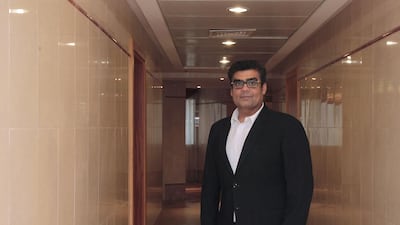DUBAI // A media company in Dubai plans to launch a regional version of Newsweek magazine in English and Arabic this year.
Newsweek Middle East, to be launched in June, will be available in the UAE, Saudi Arabia, Kuwait, Oman, Qatar and Bahrain.
ARY Digital Network, a Pakistani television company, announced this week that it acquired the rights and that they will bring the weekly magazine to the region.
ARY chief executive Salman Iqbal said that up to half of the magazine would be localised.
It will be produced by two separate editorial teams for English and Arabic versions, which will share translated and original content.
The main editing staff will be based in Dubai, with offices in the other Arabian Gulf countries, and teams of reporters, editors and photographers.
The website is to be launched in June, followed by an English-language print edition in July and an Arabic edition three to four months later, Mr Iqbal said.
He said he saw the publication as an opportunity to let the region speak for itself.
“The West has always seen the Middle East from their point of view,” said Mr Iqbal.
Newsweek returned to print last year after a turbulent few years that included a merger with the website The Daily Beast and a shift to an online-only format.
IBT Media, a company based in New York, acquired the publication in 2013. The magazine has seven other international editions in Japan, South Korea, Latin America, Montenegro, Poland, Serbia and the UK.
Mr Iqbal said the magazine was a “good way to come into print after being in television a long time”.
“I have been in the television industry for 15 years now and I’ve always heard about the print industry dying, but I’ve never seen it dead,” he said.
Traditional publishing in the Gulf has faced challenges with the digital revolution, as it has in other countries, said Mohammad Ayish, head of American University of Sharjah’s mass communications department.
“It is difficult to understand what happened and difficult to predict the future of traditional publishing in this part of the world,” said Mr Ayish.
Newspapers are placing more emphasis on their digital products but “a large chunk of the population” still read newspapers and magazines, he said.
“This market is getting very attractive for international publishers, but I’m not sure about the long-term effects,” said Mr Ayish.
While print outlets are slowly shifting to online content, more Arabic content is needed, he said.
“I think the advent of a magazine like Newsweek in Arabic is very good because it would enrich Arabic content online,” he said.
Google has said that 3 per cent of online content is in Arabic, despite the high number of people who speak the language.
“It’s not proportionate to the population size in this part of the world,” said Mr Ayish.
He welcomed the addition of a new source of Arabic-language analysis in the region.
“It will provide consumers and audiences here with another perspective about what is going on in the Middle East, which is badly needed,” Mr Ayish said.
lcarroll@thenational.ae

